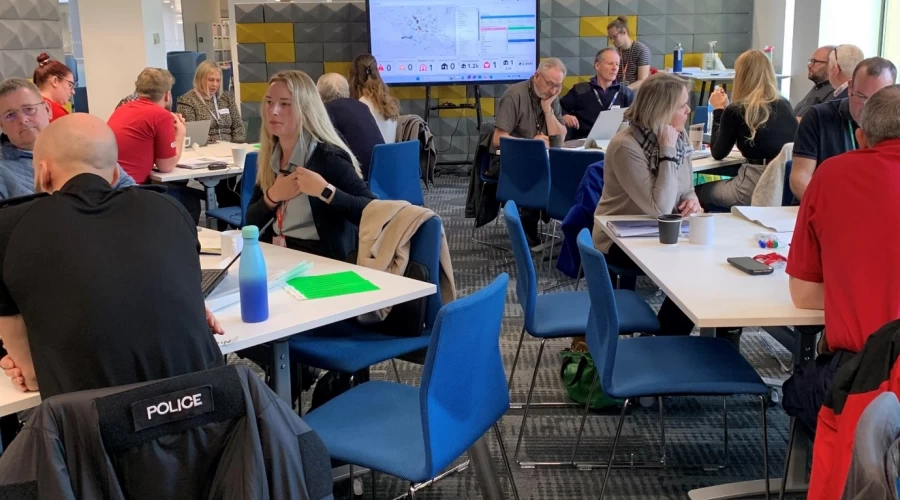LRF Engagement with Bournemouth University

LRF Engagement with Bournemouth University
Bournemouth University’s Disaster Management Centre has decades of experience in education, research and professional practice. Founded in 2001, it enjoys an international reputation to undertake research into global disaster management. Their team has years of experience working in the UK and overseas to provide world-class training and technical assistance in disaster management to help reduce risk, build resilience and ensure sustainable recovery when disaster strikes.
Bournemouth University runs its renown MSc Disaster Management Course on an annual basis to help prepare students with advanced knowledge and skills to lead on disaster management including risk reduction, resilience strategies, developing major incident management systems that respond to and help recovery from a range of disasters.
The course is accredited by the Association to the Advanced Collegiate Schools of Business (AACSB). AACSB business accreditation demonstrates an ongoing commitment to excellence in teaching, research, curriculum development, and learner success.
The course is offered to students as either a 1 year full-time or 2 years part-time and includes developing knowledge and skills from a broad range of organisations, such as government agencies, international industries and emergency services.
Related News

'Stay Safe, Tell Security' - Winter safety campaign reminding people
>1m read
The Security Industry Authority (SIA) has launched its new winter safety campaign, urging people to ‘Stay Safe, Tell Security’.

Dorset & Wiltshire Fire and Rescue Service - Smoke Alarms Save Lives
1m read
As part of the Fire Kills campaign, Dorset & Wiltshire Fire and Rescue is asking people to make sure they fit smoke alarms on every level of their home and to test them regularly.
The 42 LRFs in England and Wales are the principal structure through which resilience planning, response and recovery is delivered. It is important that students hear from experienced and knowledgeable practitioners who can discuss real scenarios that have happened, and they have dealt with. To this end, Wiltshire and Swindon LRF join with Dorset LRF to jointly deliver an input to the MSc Disaster Management Course in conjunction with the Programme Lead, Dr. Christopher Baker-Beall.
Every year, Paul Williams, Joint LRF Manager, and Debbie Haynes, Head of Dorset Civil Contingencies Unit, make their way to the South Coast to spend an afternoon with the students to deliver their input where they outline how resilience is delivered locally across the country in accordance with the requirements of the Civil Contingencies Act 2004. This is an interactive session and students are encouraged to ask questions and challenge how things work. International students can offer the perspective as to how similar matters are dealt with in their own countries making for a rich learning environment for all.
In October, Paul and Debbie again collaborated to deliver their annual input. This year’s case studies revolved around last winter’s named storms (there were 12 named storms – the greatest number of named storms since the first season in 2015) and the summer’s civil disorder. Both events impacted locally. This allowed the students to consider current and up to date issues and gain an understanding of local delivery.
Paul said “This is an event in the diary that Debbie and I look forward to. It is great to interact with the students to describe what we do and to hear their views. They are always interested and very willing to participate. Wiltshire and Swindon and Dorset LRFs are structured slightly differently, so this gives another dimension for the students to consider too.”
